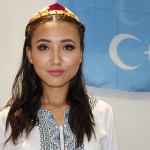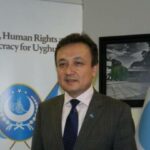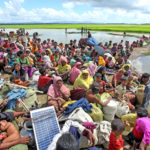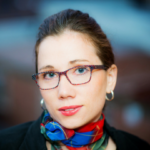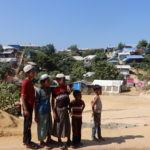A “21st Century Holocaust”: An Interview With Uyghur Activist Talgat Abbas
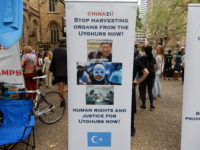
According to the Torchlight Uyghur Group, when the flights out of Wuhan city – the coronavirus epicentre – were cancelled on 23 January, one set of flights was allowed to continue, and they were those bound for Urumqi, the capital city of China’s Xinjiang province, or occupied East Turkestan.
The Uyghur Human Rights Project released a report last week, outlining that new evidence is arising out of East Turkestan-Xinjiang – the homeland of the mainly Muslim Uyghur people – showing that locals have been forced to lock themselves in their houses without time to source adequate food.
While the Uighur Times reported on 26 February that more than 30,000 Uyghur workers in the ancient city of Hotan – who’d previously been told to stay home from work – had then been ordered to simply return to 229 enterprises that authorities had reopened.
And as the reports of COVID-19 cases have begun to appear in the region, there are now fears of an outbreak in the political indoctrination camps that are operating throughout East Turkestan, in which over a million Uyghurs are currently being detained without charge or trial.
Ever-increasing repressions
Details of the mass incarceration of up to a million Uyghur people in concentration camps began emerging in early 2018. And it soon became apparent that unbeknownst to the outside world, this network of camps had begun operations in April the previous year.
The Uyghur people have been subjected to oppressive rule since 1949, when the Chinese Communist Party (CCP) began its occupation of their homeland. However, the repression was ramped up in 2014, with the implementation of Chinese president Xi Jinping’s Strike Hard campaign.
And then following the appointment of Chen Quanguo to Xinjiang province CCP secretary in August 2016, the situation in the region only got worse for the Indigenous peoples, as this party strongman began to unleash the same policies he’s notorious for having imposed in Tibet.
So, right now, not only are increasing numbers of locals being arbitrarily incarcerated, but those in the region are subjected to one of the most sophisticated surveillance systems in the world, which sees most aspects of their daily lives being monitored.
A down under demonstration
Talgat Abbas is an Uyghur man from Urumqi, who came to Australia back in 1986. Now, a resident of this city, Abbas has taken it upon himself to raise the awareness of Sydneysiders to the plight of his people in their homeland.
For the last four and a half months, Abbas has been running a demonstration every weekend out the front of Sydney Town Hall, informing the public about the mass incarceration, the cultural bans, and the intense suffering that Uyghurs are being subjected to.
Sydney Criminal Lawyers spoke to Mr Abbas about the reasons behind what he terms a “21st century holocaust”, the attempted erasure of the Uyghur culture, and his hopes for the coming United Nations visit to his homeland.
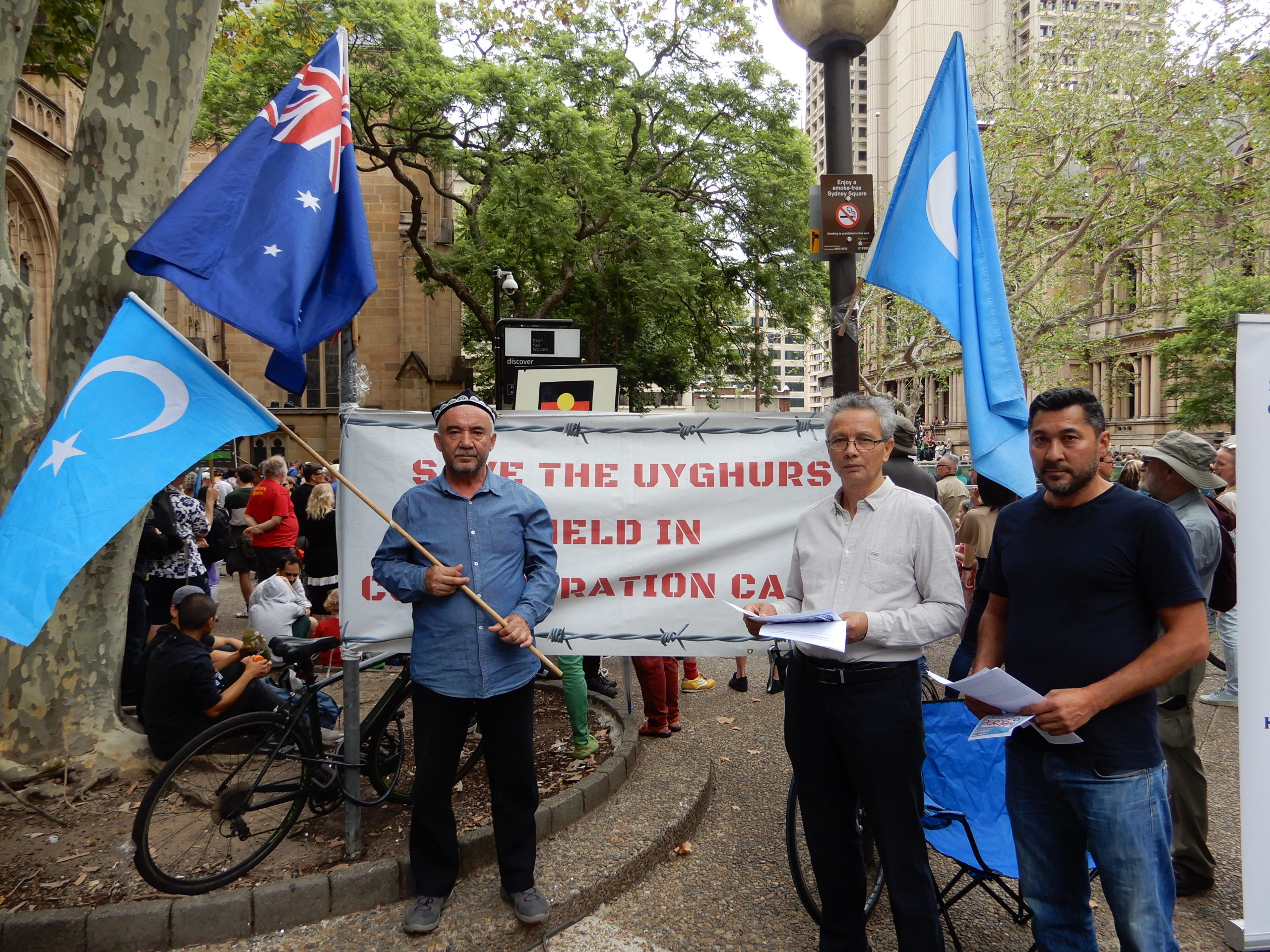
Firstly, there’s more than a million Uyghurs locked in political indoctrination camps at present. Mr Abbas, why are they being detained like this? And what sort of conditions are they facing?
The reason we believe the Uyghurs are being detained has come about after Xi Jinping took power in China and became a dictator.
The Chinese president started the Belt and Road Initiative. This project has to go through East Turkestan, which is the area that the Chinese call Xinjiang, meaning “a new territory”.
All of the railway lines, roads and gas pipelines involved in the initiative have to go through there. Our territory borders the countries that will connect through to Europe.
So, we believe this is one of the main reasons that they’re cracking down on us. They want the route to go through and they want to suppress us, so we don’t oppose it.
Once they open it for business, it will have to be open to the world. And journalists and others will have to be able to go there freely to see what’s going on.
A little bit of a democratic system will have to be allowed. So, they’re suppressing our people and punishing them in order to tell them that they have to behave.
China invaded East Turkestan. There was a battle and fighting. We had our own army. But, unfortunately, we lost, and the Chinese were able to take over in a similar way to Tibet.
Our people have never accepted that the Chinese are the owners of the land, because we know that it was invaded. And we have a sour feeling, because our ancestors were killed when they took over. So, there’s always been resistance within our people.
Since the invasion, the Chinese have suppressed our people. They’ve treated them as a lower class. Our people have been mistreated in many ways. And there have always been protests and resistance to Chinese oppression and invasion.
So, the Chinese have intensified what was already an oppressive situation for the benefit of the new Silk Road project, which will connect China overland with the outside world?
That’s correct. Since the invasion, they’ve had a different policy towards our people. They’ve always been watched, spied upon and punished, when they’ve asked to be treated in the same manner as Chinese citizens.
And they’ve crackdown, whenever Uyghurs have asserted our rights to learn our own culture and history, speak our own language, and practice our religion. Slowly, they’ve banned the teaching of our language in our schools.
The oppression has become more intense, because people were resisting and starting to complain.
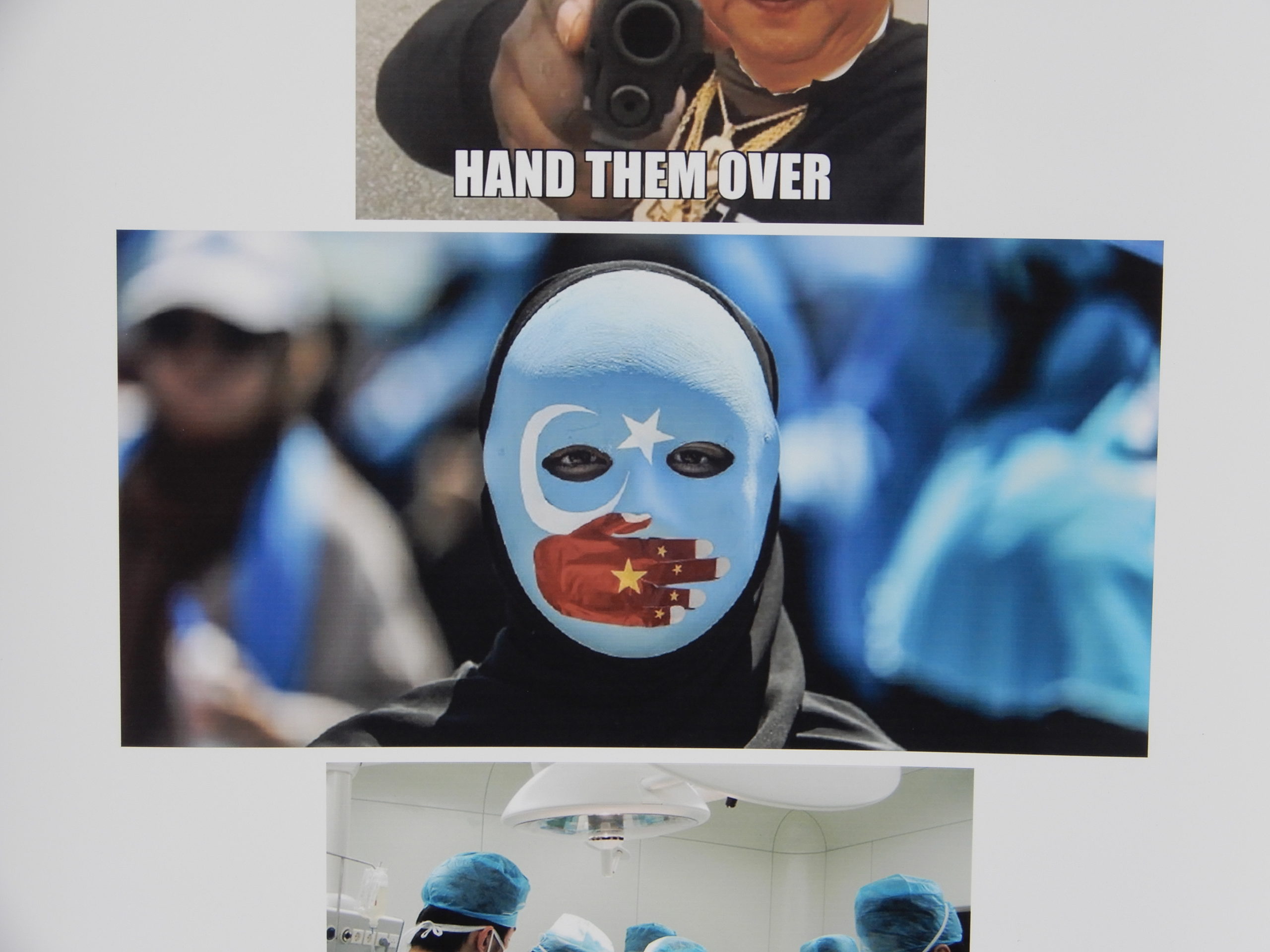
There are reports that in late January, when the Chinese government cut off all flights out of Wuhan – the city where the coronavirus broke out – it continued to allow flights to run into Urumqi, the capital of the Uyghur homeland.
Mr Abbas, in your understanding, what’s happening in the region in relation to COVID-19?
It’s not surprising. The Chinese government has a policy of punishing and persecuting our people.
It was a good excuse for them to try to cause the death of many Uyghurs, so as to reduce our numbers by allowing the Chinese in Wuhan to flow into our country.
We only get information occasionally from there. But, they say the virus is there now, and there’s a death toll. I don’t know whether Uyghurs are dying, or if the virus has made it into the concentration camps.
The Xinjiang Uyghur Autonomous Region is one of the most heavily surveilled places on the planet.
The Chinese government uses a mass data collating system, which is known as the Integrated Joint Operations Platform. How are Uyghurs being monitored in East Turkestan?
It’s one of the worst regions for government and police checkpoints. There are cameras in the streets.
Every Uyghur person who has a mobile phone has Chinese apps on it, which monitor them. They can hear conversations. It’s as bad as that. They even believe there are cameras and listening devices in some homes.
They’re using Chinese citizens – as well as paying some Uyghurs – to spy on their neighbours. They also question Uyghur kids about whether their parents are speaking in the Uyghur language at home, praying in the house, or teaching them about their own culture.
There are all these tactics to stop them from being like Uyghurs, because they want them to speak Chinese and live like the Chinese.
You’ve just mentioned some of the restrictions that have been placed upon Uyghurs in their daily lives, which seem to be an attempt to erase Uyghur culture. What are some of the cultural bans that are operating in the region?
One of the strictest bans is on religious practices. Men aren’t allowed to have beards. They accuse them of following terrorism if they do.
Going to mosques is banned. And women wearing hijab is banned. If they do wear it, they will be taken to the concentration camps.
Even having a name such as Abdullah or Mohammed is not allowed. So, they’re restricting them from everyday religious practices.
And what sort of impact has that been having?
The people have been devastated. They don’t have a normal life anymore. Uyghurs have their own unique identity. They grew up with Islamic practices. And their culture is different to that of the Chinese. It’s an original and very old Turkic culture.
The people are devastated. They’re living under a dictatorship, where they’re not allowed to live as themselves.
They also have birth controls. Uyghurs are now only allowed to have one child. It used to be two children for Uyghurs. So, if they have another baby, they force them to have an operation to stop it.
You’re from Urumqi, the capital of East Turkestan. But, you live in Sydney today. How large is the Uyghur community in Australia? And how is it dealing with what’s happening in its homeland?
The Uyghur community in Sydney is close to 600 people. Over the whole of Australia, I would say the community is somewhere between two and half thousand to three and a half thousand.
What’s happening in East Turkestan is affecting most of the local Uyghurs directly. A lot of their relatives have been detained in concentration camps. Some of them have even died.
If their relatives aren’t being locked up in the camps, they’re being visited by Chinese authorities and being asked about their relatives here. They’re being told to tell their relatives over here not to get involved in any political activities against the Chinese government.
So, they use many tactics. And psychologically many Uyghurs abroad are suffering because of the situation over there.
You’re running a weekly weekend demonstration at Sydney’s Town Hall. What does that involve?
Firstly, it’s our duty to fight against the oppression of the evil regime in China. They’re oppressing and killing many innocent people.
We are trying to raise public awareness so that people around the world stand up to join with us against the Chinese regime. And hopefully, it will put pressure on governments. Many governments aren’t doing much at the moment.
And there are others that are supportive of the crimes against the Uyghur people, like Russia, Iran, Pakistan and some of the Latin American countries.
Many of them are actually partners with China on the Belt and Road Initiative. So, they’re supportive of the suppressing of Uyghurs.
We’re hoping that many of the leaders of other countries begin to wake up, see the facts, condemn the Chinese, and work to stop them with this 21st century holocaust.
And lastly, the UN high commissioner on human rights Michelle Bachelet is set to pay an official visit to Xinjiang this year. What sort of an impact is this likely to have?
I hope that it’s going to be an effective visit. We know that when a lot of journalists and people from governments have visited there, the Chinese government has been successful in creating their own fake camps that presented the idea that Uyghurs were being educated and trained for work.
This was all staged. They were staged educational centres. In reality, most of the concentration camps are very harsh. The prisoners do not have any freedom.
They cannot sleep properly. They get hit by electric sticks if they don’t obey. They don’t feed the people properly. They give them injections and tablets every day to calm them down.
Many people have died in the camps already. And many have disappeared. We believe they take the young healthy people for organ harvesting.
We hope that the UN high commissioner does strongly stand on what they believe so as to make the Chinese government uphold the human rights of the Uyghur people.


